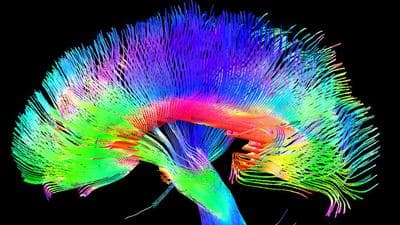Advertisement
Why to Exercise Today: Grow Your Brain

Here’s yet another benefit of regular exercise: a healthy, growing brain. Previous studies have demonstrated that exercise increases the activity of a protein called brain-derived neurotrophic factor, a substance vital to brain health, learning, and memory function. But scientists have been baffled as to how exactly exercise leads to that increase.
Now, one piece of this molecular puzzle has finally been put into place. A new study in the journal Cellular Metabolism, conducted by researchers at the Dana-Farber Cancer Institute and Harvard Medical School, identifies a new protein, called FNDC5, that is released into the bloodstream during exercise and boosts the expression of brain-derived neurotrophic factor.
From the press release:
In the new research, endurance exercise – mice voluntarily running on a wheel for 30 days – increased the activity of a metabolic regulatory molecule, PGC-1α, in muscles, which spurred a rise in FNDC5 protein. The increase of FNDC5 in turn boosted the expression of BDNF (brain-derived neurotrophic factor) in the dentate gyrus of the hippocampus, a part of the brain involved in learning and memory.
It has been found that exercise stimulates BDNF in the hippocampus, one of only two areas of the adult brain that can generate new nerve cells. BDNF promotes development of new nerves and synapses – connections between nerves that allow learning and memory to be stored – and helps preserve the survival of brain cells.
…
Having shown that FNDC5 is a molecular link between exercise and increased BDNF in the brain, the scientists asked whether artificially increasing FNDC5 in the absence of exercise would have the same effect. They used a harmless virus to deliver the protein to mice through the bloodstream, in hopes the FNDC5 could reach the brain and raise BDNF activity. Seven days later, they examined the mouse brains and observed a significant increase in BDNF in the hippocampus.
This last finding raises an intriguing possibility: that we could help keep our brains healthy if FNDC5 were developed into a drug. But this has far more important implications for combating aging-related disease. The researchers speculate that perhaps one day, administering FNDC5 could slow the progression of devastating diseases like Alzheimer’s and Parkinson’s.
This program aired on October 31, 2013. The audio for this program is not available.